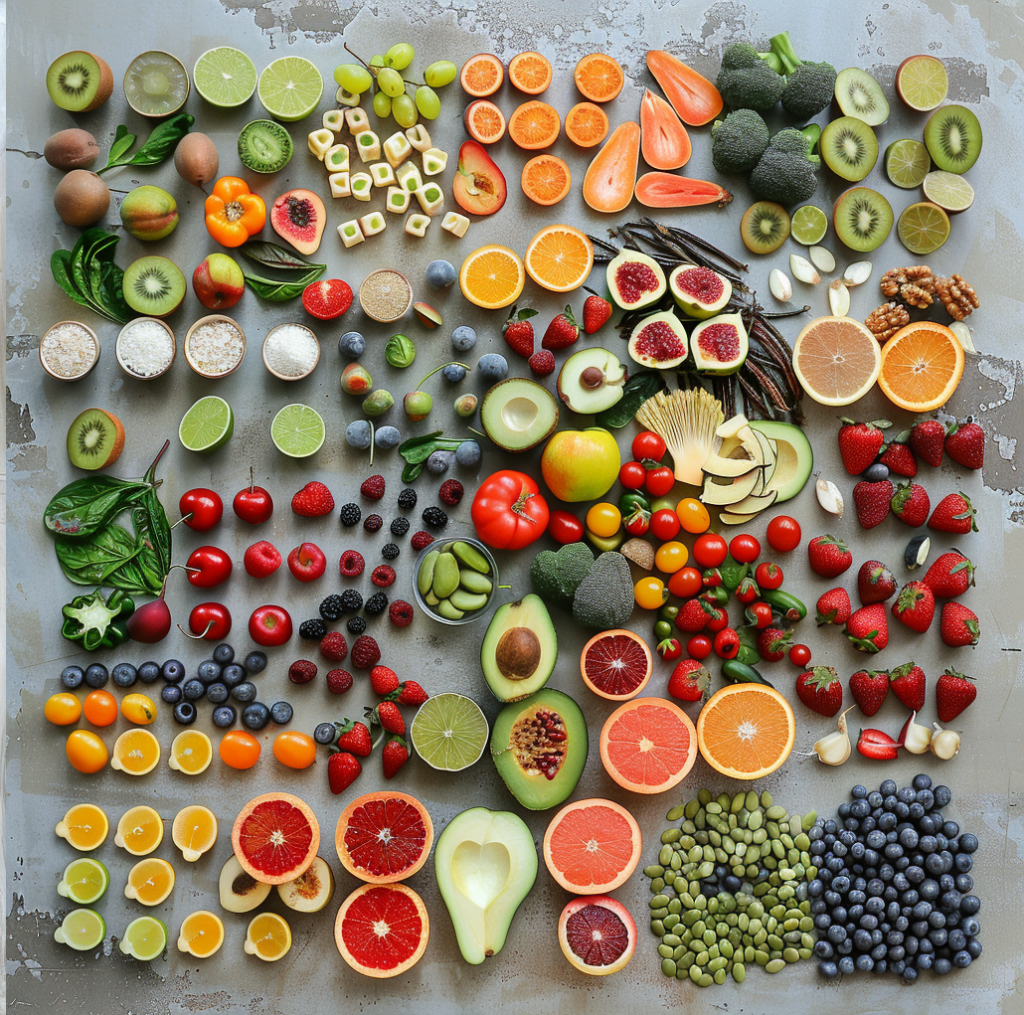Q&A: Understanding the Connection Between Nutrition and Skin Health

Q&A: Understanding the Connection Between Nutrition and Skin Health
Q: How does what we eat affect our skin?
A: Our skin acts as a protective barrier against environmental stressors like UV rays and pollution, but our diet also deeply influences it. Nutrients from what we eat can improve the skin’s appearance, function, and aging process. This includes how the skin defends itself from damage and heals and rejuvenates.
Q: What specific nutrients are beneficial for skin health?
A: Key vital nutrients in skin health include vitamins, carotenoids, and polyunsaturated fatty acids. These nutrients help protect the skin from UV damage, reduce inflammation, and support the skin’s immune response. They are essential for maintaining the structural integrity and functionality of the skin.
Q: Can carotenoids in our diet help protect against UV damage?
A: Yes, carotenoids like β-carotene and lycopene—found in carrots and tomatoes—have antioxidant properties that help protect the skin from sunburn and UV damage. Although they do not replace sunscreen, they enhance the skin’s baseline defences against UV-related harm.
Q: What is the role of polyunsaturated fatty acids in skin health?
A: Polyunsaturated fatty acids, often derived from fish oil, are known for modulating inflammatory mediators in the skin. This makes them particularly useful in treating inflammatory skin conditions. They also help boost immune function in the skin, which can be especially beneficial for older adults.
Q: Are there any proven dietary interventions for common skin conditions like acne or atopic dermatitis?
A: Yes, well-documented studies show that dietary interventions containing essential nutrients can significantly improve conditions such as acne and atopic dermatitis. These nutrients help restore the skin’s structural integrity, function, and appearance by reducing inflammation and supporting the skin’s natural barrier.
Q: What is the importance of a balanced diet for skin health?
A: A balanced diet rich in specific nutrients is crucial for maintaining healthy skin. Nutrients support the physical structure of the skin and its ability to regenerate and repair itself. Maintaining such a diet helps prevent premature aging and protect against environmental damage.
Q: What gaps exist in the current nutrition and skin health research?
A: While the benefits of specific nutrients are well-recognized, less information is available about the effects of consuming these nutrients in low-to-moderate doses over the long term in healthy individuals. Research is needed to understand how everyday dietary choices affect skin hydration, sebum production, elasticity, and other basal properties of healthy skin.
Q: What should people consider about their diet for better skin health?
A: People should consider incorporating a variety of nutrients that support skin health into their daily diet. This holistic approach to skincare emphasizes that nutritional choices are as crucial as topical skincare products in maintaining skin health and preventing skin-related issues.
Sources:
Akalın G, Selamoglu Z. Nutrition and Foods for Skin Health. J Pharm Care. 2019;7(1-2):31-33.
Boelsma E, Hendriks HF, Roza L. Nutritional skin care: health effects of micronutrients and fatty acids. Am J Clin Nutr. 2001 May;73(5):853-64. doi: 10.1093/ajcn/73.5.853. PMID: 11333837.
Pappas A, Liakou A, Zouboulis CC. Nutrition and skin. Rev Endocr Metab Disord. 2016 Sep;17(3):443-448. doi: 10.1007/s11154-016-9374-z. PMID: 27401878.
Park K. Role of micronutrients in skin health and function. Biomol Ther (Seoul). 2015 May;23(3):207-17. doi: 10.4062/biomolther.2015.003. Epub 2015 May 1. PMID: 25995818; PMCID: PMC4428712.
Stahl W, Sies H. Photoprotection by dietary carotenoids: concept, mechanisms, evidence and future development. Mol Nutr Food Res. 2012 Feb;56(2):287-95. doi: 10.1002/mnfr.201100232. Epub 2011 Sep 23. PMID: 21953695.